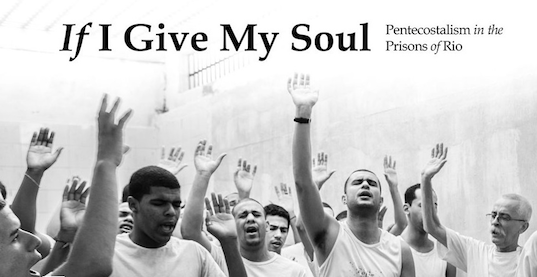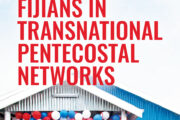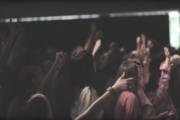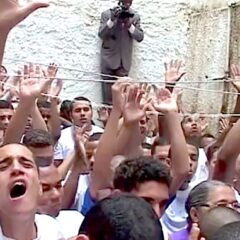The Research on Religion Podcast featured CRCC Research Associate Andrew Johnson with a discussion of his research into the role of Pentecostalism in Brazilian prisons. His research, conducted as part of CRCC’s Pentecostal and Charismatic Research Initiative, was the basis for his dissertation, a documentary film and a forthcoming book.
The podcast page has a full description of the conversation. Here’s an excerpt:
Although the largest Catholic nation on Earth, Brazil has witnessed a significant increase in Protestantism in recent decades with a majority of those Protestants being of the Pentecostal faith. Andrew documents how Pentecostalism is a very appealing faith to individuals within the poor, marginalized neighborhoods of Brazilian cities known as favelas. These are also areas where criminal gangs run the neighborhoods, but interestingly these gangs have a very symbiotic relationship with the Pentecostal churches. It is this interesting relationship that then translates into prison, which is often a concentrated microcosm of life within the favelas.
… Andrew actually spent several weeks living within a prison in Rio de Janeiro to develop a greater sense of what the world of prisoners was like. We cover the various difficulties in getting this type of study off the ground, as well as Andrew’s own reflections going into, living within, and then coming out of this very dangerous and difficult environment.
…Andrew [points] out that it is not just visiting pastors and religious volunteers that bring religious services into the jail, but rather it is the prisoners themselves who often establish and run their own ministries. We talk about different roles played out by the inmates, including the position of secretary of the prison church — a person who records the visitors, attendees, and controls the finances. Many of these churches have distinct clothing made for them and purchase musical instruments for worship services. Andrew stresses the role of “authenticity” with respect to these churches. Whereas members of these Pentecostal churches are often a protected group with the prison environment, it must be shown that the members who join are really “living the life” or “walking the talk.” Whereas Dr. Johnson is not in a position to evaluate the true depth of belief of any individual, he does note how this plays out in a broader social context.
Click her to hear the podcast








